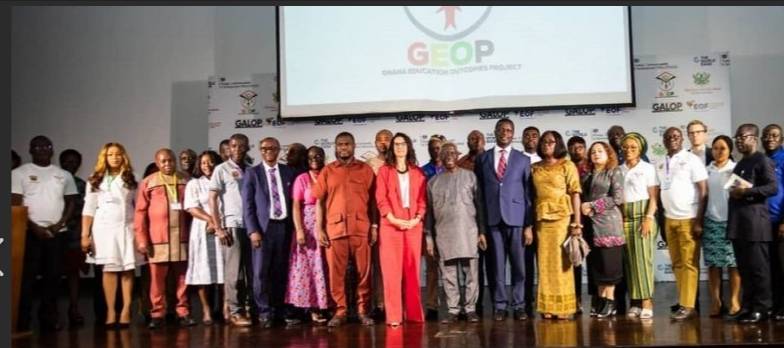In a significant stride towards improving access to quality education in Ghana, President Nana Addo Dankwa Akufo-Addo has officially inaugurated more than 80 educational infrastructure projects across all 16 regions of the country. This initiative underscores the government’s commitment to bridging educational gaps and empowering the next generation with enhanced learning facilities.
Addressing Infrastructure Deficits
The newly commissioned projects include modern classroom
blocks, libraries, science laboratories, and Information and Communication
Technology (ICT) centers. These facilities aim to address long-standing
infrastructure deficits in Ghana’s education sector, particularly in
underserved and rural areas. According to government officials, these projects
are tailored to meet the diverse needs of students and educators, fostering a conducive
environment for learning and teaching.
Speaking at one of the inauguration ceremonies, President
Akufo-Addo emphasized the transformative impact of these projects. “Education
is the bedrock of our nation’s development. By providing state-of-the-art
facilities, we are ensuring that every child, regardless of their background,
has an equal opportunity to succeed,†he stated.
ICT Training for Girls
In a notable development, 1,000 girls in Kumasi have
received specialized ICT training as part of the broader educational reforms.
This initiative seeks to close the gender gap in technology and empower young
women to pursue careers in science, technology, engineering, and mathematics
(STEM). Local education leaders hailed the program as a significant step towards
achieving gender equality in the tech industry.
Community Reactions
The inauguration has been met with widespread praise from
educators, parents, and local leaders. Many see it as a timely intervention to
address challenges such as overcrowded classrooms and outdated facilities.
Samuel Amankwah, a headteacher in the Bono Region, remarked, “This project will
greatly enhance the teaching and learning experience in our community. We’ve
waited a long time for such an opportunity.â€
Sustaining the Momentum
Education Minister Dr. Yaw Osei Adutwum outlined plans to
ensure the maintenance and sustainability of the newly constructed facilities.
“Our focus is not only on providing infrastructure but also on ensuring that
these facilities are well-maintained for future generations,†he noted. The
Ministry of Education has pledged to work closely with local authorities and
schools to implement robust maintenance strategies.
Broader Implications
These developments come at a time when Ghana’s education
sector is undergoing significant reforms aimed at achieving the United Nations
Sustainable Development Goal 4 (Quality Education). Analysts believe that such
investments will yield long-term benefits, including increased enrollment rates
and improved academic performance.
The government’s efforts have also sparked discussions on
the importance of private sector partnerships in complementing public
initiatives. As Ghana continues to prioritize education, stakeholders are
optimistic about the country’s ability to build a knowledge-based economy.




No comments yet
Be the first to share your thoughts!